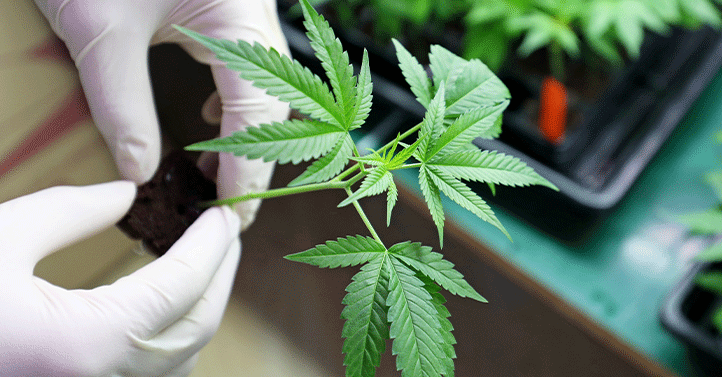Many analysts predict that the global market for biopesticides will double over the next five years — but much of this growth won’t come from traditional markets.
“Medical marijuana,” says Dennis Fugate, Industry Manager for our Agriculture and Specialty Pesticide practice, “is one of the more unusual markets fueling the increased demand for biopesticides.” Because the compounds that are used in biopesticides have very specific modes of action, they don’t affect non-targeted organisms, making them very appealing to growers of medical marijuana. And, because biopesticides don’t leave behind dangerous residues, they’ve become equally as appealing to users of medical marijuana.
The size of the medical marijuana market is nothing to sniff at; it’s projected to reach USD 70.6 billion by 2028. Further, a growing number of states are approving the use of marijuana for recreational purposes. In total, the global legal marijuana market is projected to reach USD 111.31 billion by 2028.
That’s not the only good news for the biopesticides industry. The Environmental Protection Agency has approved 10 pesticides for use in cultivating hemp (which belongs to the same species as marijuana) — and nine of the 10 are biopesticides.
Biopesticides are a unique group of pesticides that are derived from a broad range of natural, non-toxic materials such as plants, animals, certain minerals, and bacteria. One way they work is by hindering the mating cycles of pests. Biopesticides also incorporate beneficial microorganisms that compete with disease-causing microbes to prevent disease outbreaks.
Traditional pesticides, on the other hand, are generally synthetic materials that not only are toxic to the pest, but they often negatively affect non-targeted organisms. “Many of the people using medical marijuana have compromised immune systems,” says Fugate. “This is a population that is particularly vulnerable to the toxic residues that traditional pesticides can leave behind on plants.”
For more insights and data on many other crop segments and new technologies for the growing biopesticides market, be on the lookout for our upcoming Global Biopesticides: An Overview of Natural Pesticides report.
About this blog:
Biopesticides Are Going to Pot — But That’s Good News for the Market contains insights from Dennis Fugate, Industry Manager for Kline’s Agriculture and Specialty Pesticide practice. He is responsible for the syndicated market research reports covering all pesticide-related markets. Fugate has more than 30 years of experience in various ag and specialty pesticide markets. He began his career with Kline in 1996, working on various multi–client and proprietary studies. Previously, Fugate served in various capacities in the animal health and pest-control divisions of Zoëcon. He has also worked as a marketing manager for the biocontrol division of W.R. Grace.
Press inquiries:
| Lance Debler |
| Content Marketing Manager |
| Kline & Company |
| +1-973-435-3425 |

